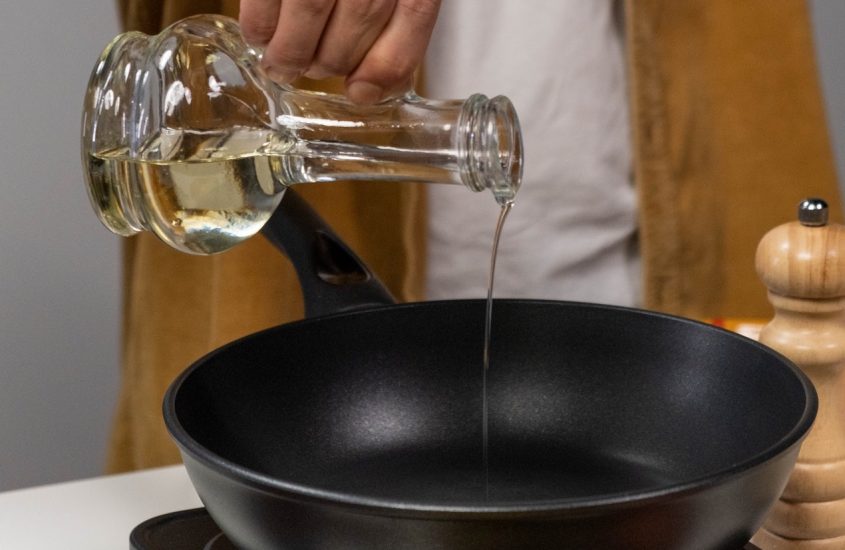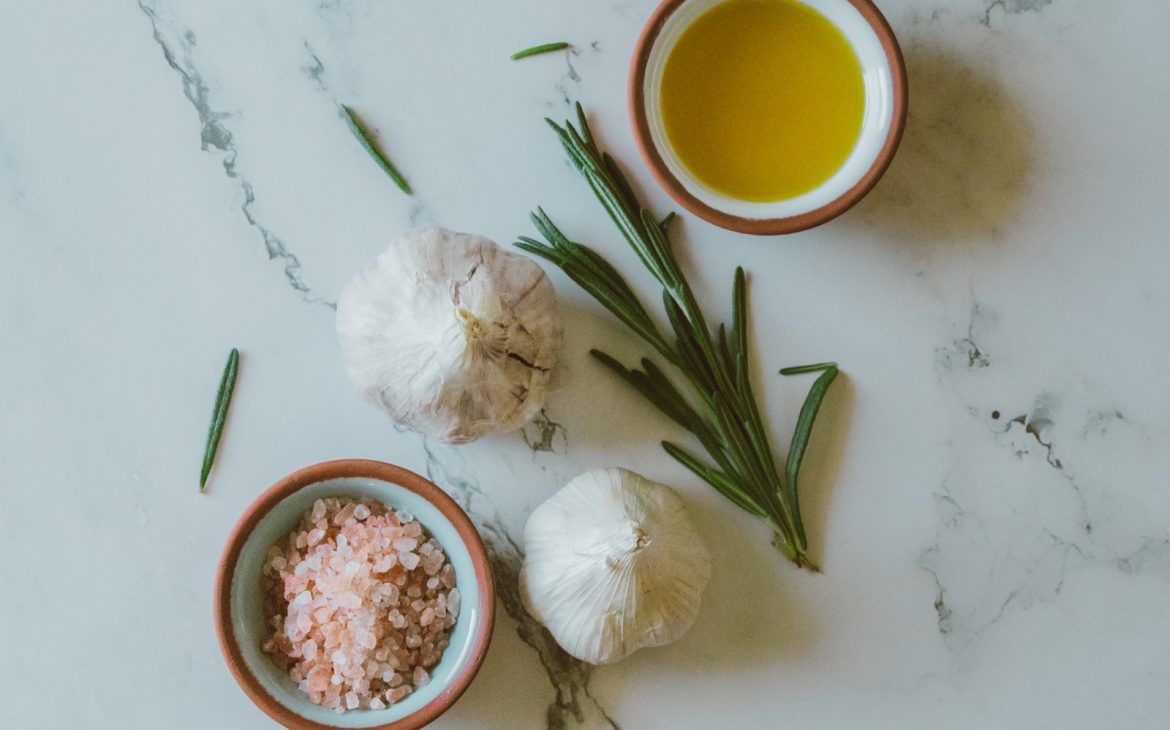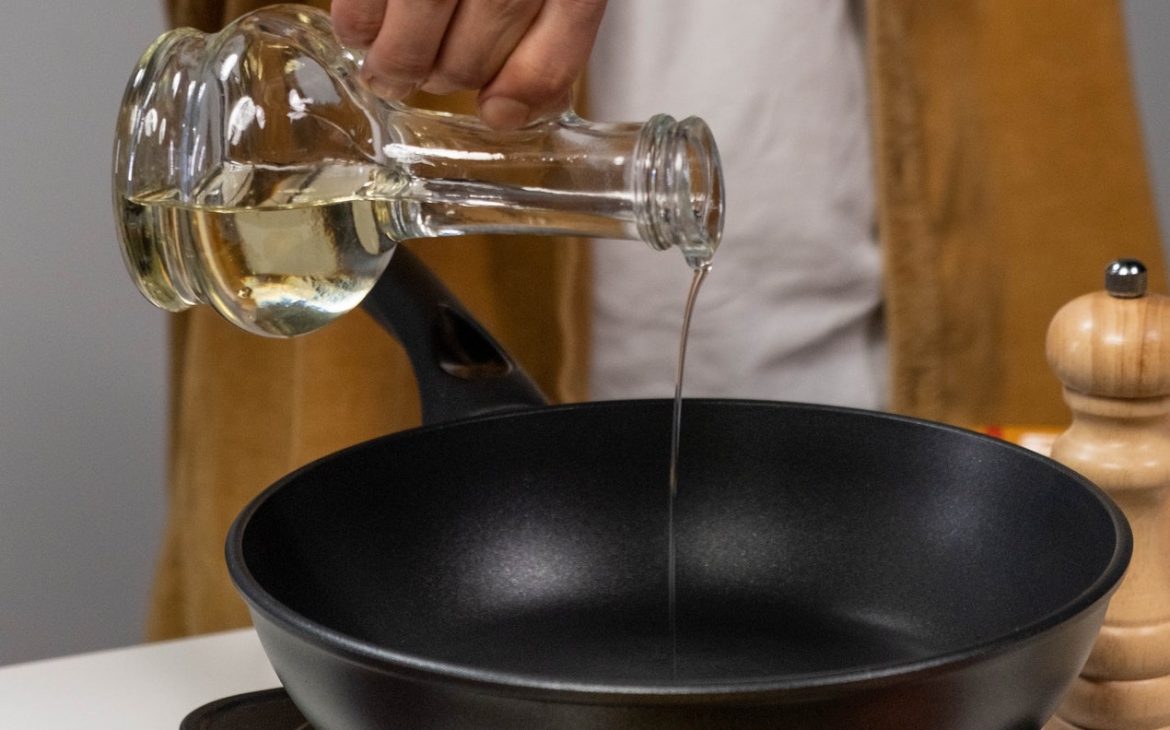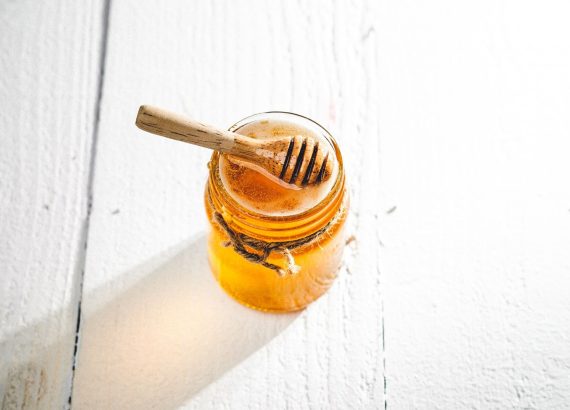9 Best Oil Types to Season Cast Iron: Cons and Pros

Cast iron is one of the oldest cookware materials out there. It’s durable, evenly distributes heat, and can be used on almost any cooking surface.
However, to get the most out of your cast iron, you must season it properly with oil. But which oil should you use? And how do you know if you’re using it correctly? In this blog post, we’ll discuss the different types of fat used to season cast iron and their pros and cons.
Page Contents
What is cast iron seasoning?
Seasoning is the process of coating cast iron with a thin layer of oil, which helps to create a non-stick surface and prevents rust from forming.

It’s important to season your cast iron cookware before using it for the first time and to re-season it regularly to keep it in good condition. There are a few different methods of seasoning cast iron, but the most common is to rub it with oil and bake it in the oven.
What type of oil should I use?
Many different types of oil can be used to season cast iron, but some are better than others. The best oils for seasoning cast iron are those with a high smoke point and less likely to go rancid. Oils with a high smoke point will create a more durable seasoning on your cookware, and those less likely to go rancid will help prevent it from rusting.
Some of the best oils for seasoning cast iron include:
- Canola oil
- Coconut oil
- Vegetable oil
- Flaxseed oil
- Sunflower oil
How do I season my cast iron cookware?
Now that you know which oil to use, it’s time to season your cast iron cookware! The process is simple:
- Just rub a thin layer of oil all over the cookware, inside and out.
- Place it in a preheated oven and bake it for 1-2 hours.
- Once it’s done, allow it to cool completely before using it or storing it.
It’s important to note that you should never use soap to clean your cast iron cookware, as it will strip away the seasoning. Instead, if your cookware becomes dirty, scrub it with a stiff brush and hot water.
Now that you know how to season your cast iron cookware, you can enjoy its benefits! Be sure to re-season it regularly to keep it in good condition, and don’t forget to use it for all your cooking needs.
Let’s now take a closer look at the best oils to season your cast iron.

1. Canola oil – One of the cheapest option
Canola oil is a type of vegetable oil that is made from rapeseed. It has a high smoke point and is less likely to go rancid, making it an excellent choice for seasoning cast iron. It is also cholesterol-free and contains a high amount of monounsaturated fats, which are beneficial for your health.
There are pros and cons of seasoning cast iron with canola oil.
Pros:
- Canola oil has a high smoke point, creating a more durable seasoning on your cookware.
- It’s less likely to go rancid, which will help prevent rust.
- Canola oil is a relatively inexpensive option.
Cons:
- Canola oil is derived from plants, so it may not suit those with allergies.
- It has a fairly neutral flavor, so it may not add much to the taste of your food.
2. Vegetable oil – an excellent choice
Vegetable oil is a type of cooking oil that is made from plants. It has a high smoke point and is less likely to go rancid, making it an excellent choice for seasoning cast iron. It is also cholesterol-free and contains a high amount of monounsaturated fats, which are beneficial for your health.
Let’s look at the pros and cons of seasoning cast iron with vegetable oil
The pros and cons of seasoning cast iron with vegetable oil are similar to canola oil. Vegetable oil has a high smoke point, is less likely to go rancid, and is relatively inexpensive. However, it may not be suitable for those with allergies, and it has a fairly neutral flavor.
3. Flaxseed oil – healthy but smelly option
Flaxseed oil is a type of vegetable oil that is made from flaxseeds. It has a high smoke point and is less likely to go rancid, making it a great choice for seasoning cast iron. Flaxseed oil is also rich in omega-3 fatty acids, which are beneficial for your health.
There are pros and cons of seasoning cast iron with flaxseed oil.
Pros:
- Flaxseed oil has a high smoke point, which means it will create a more durable seasoning on your cookware.
- It’s less likely to go rancid, so it’s better to cook on heat.
- Flaxseed oil is rich in omega-3 fatty acids, which are beneficial for your health.
Cons:
- Flaxseed oil is derived from plants, so it may not be suitable for those with allergies.
- It has a nutty flavor, which some people may not enjoy.
4. Sunflower oil – cheap good option
Sunflower oil is a type of vegetable oil made from sunflower seeds. It has a high smoke point and is less likely to go rancid, making it a great choice for seasoning cast iron. Sunflower oil is also rich in vitamin E, which benefits your health.
There are pros and cons of seasoning cast iron with sunflower oil.
Pros:
- Sunflower oil has a high smoke point, which means it will create a more durable seasoning on your cookware.
-It’s less likely to go rancid, which will help prevent rust.
-Sunflower oil is rich in vitamin E, which benefits your health.
-It has a fairly neutral flavor.
Cons:
-Sunflower oil is derived from plants, so it may not suit those with allergies.
As you see, there are more pros than cons to using sunflower oil to season your cast iron.
5. Lard – a good option, but not suitable for vegans
Lard is a type of animal fat that is made from pork. It has a high smoke point and is less likely to go rancid, making it a great choice for seasoning cast iron. Lard is also rich in monounsaturated fats, which are beneficial for your health.
There are a few pros and cons of seasoning cast iron with lard.
Pros:
- Lard has a high smoke point, creating more durable seasoning on your cookware.
- It’s less likely to go rancid, which will help prevent rust.
- Lard is rich in monounsaturated fats, which are beneficial for your health.
Cons:
- Lard is animal fat, so it may not be suitable for those with specific dietary restrictions.
- It has a relatively strong flavor, which some people may not enjoy.
Besides, since lard is animal fat, this option will not suit vegetarians who do not consume animal products.
6. Avocado oil – best vegetable oil
Avocado oil is a type of vegetable oil that is made from avocados. It has a high smoke point and is less likely to go rancid, making it a great choice for seasoning cast iron. Avocado oil is also rich in monounsaturated fats, which are good for your health.
Let’s look at the cons and pros of avocado oil when it comes to seasoning cast iron.
Pros:
- Avocado oil has a high smoke point, which means it will create a more durable seasoning on your cookware.
- It’s less likely to go rancid, which will help prevent rust (the smoking point is 520F).
- Avocado oil is rich in monounsaturated fats, which are beneficial for your health.
Cons:
- Avocado oil is derived from plants, so it may not suit those with allergies.
- It has a relatively strong flavor.
7. Olive oil – last considerable option
Olive oil is a type of vegetable oil that is made from olives. It has a low smoke point, creating more durable seasoning on your cookware. Unfortunately, olive oil is also rich in monounsaturated fats, which are beneficial for your health, but in the raw uncooked way. So, olive oil does not fit for seasoning cast iron, but let’s consider the cons and pros.
There are pros and cons of seasoning cast iron with olive oil.
Pros:
- Olive oil has a low smoke point, which means it will create a more durable seasoning on your cookware.
- It’s rich in monounsaturated fats, which are beneficial for your health (but in raw).
Cons:
- Olive oil has a strong flavor, which some people may not enjoy.
- It can go rancid more quickly than other oils.
- The lower smoke point at 375°F can release harmful chemicals as it burns.
You may consider doing seasoning with olive oil but only on low heat.
8. Coconut oil – good choice
Coconut oil is a type of vegetable oil that is made from coconuts. It has a high smoke point and is less likely to go rancid, making it a great choice for seasoning cast iron. Coconut oil is also rich in lauric acid, which has antibacterial and antiviral properties.
There are pros and cons of seasoning cast iron with coconut oil.
Pros:
- Coconut oil has a high smoke point, which means it will create a more durable seasoning on your cookware.
- It’s less likely to go rancid, which will help prevent rust.
- Coconut oil is rich in lauric acid, which has antibacterial and antiviral properties.
Cons:
- Coconut oil is derived from plants, so it may not suit those with allergies.
- It has a strong flavor, which some people may not enjoy.
- Coconut oil can solidify at room temperature, making it difficult to use.
- Virgin oil has a lower smoke point of 350°F that is very low.
9. Grape seed oil – the winner
Grape seed oil is an edible oil extracted from grapes’ seeds. It is a light, colorless oil with a high smoke point and a mild flavor. Grape seed oil is a good choice for cooking because it is a healthy monounsaturated fat and doesn’t have a strong flavor.
There are pros and cons of seasoning cast iron with grape seed oil.
Pros:
- Grape seed oil has a high smoke point, creating a more durable seasoning on your cookware.
- It’s less likely to go rancid, which will help prevent rust.
- Grape seed oil is rich in antioxidants, which can help to protect your cookware from damage.
Cons:
- Grape seed oil is derived from plants, so it may not suit those with allergies.
- It has a strong flavor, which some people may not enjoy.
- Grape seed oil can be expensive.
Peanut oil – really good taste
Peanut oil is a great option for seasoning cast iron because it has a high smoke point and is relatively affordable. However, some people may be allergic to peanuts, so it’s not the best option for everyone.
The pros of seasoning cast iron with peanut oil are that it has a high smoke point, can withstand high temperatures without smoking or burning, and is relatively affordable.
The cons of seasoning cast iron with peanut oil are that some people may be allergic to peanuts. If you have a peanut allergy, it’s best to avoid using this oil to season your cast iron.
Over to You
Other good options for seasoning cast iron include avocado oil, canola oil, grapeseed oil, and coconut oil. These oils all have high smoke points and can withstand high temperatures without smoking or burning.
Do you have any tips for seasoning cast iron? Could you share them in the comments below?





No Comments